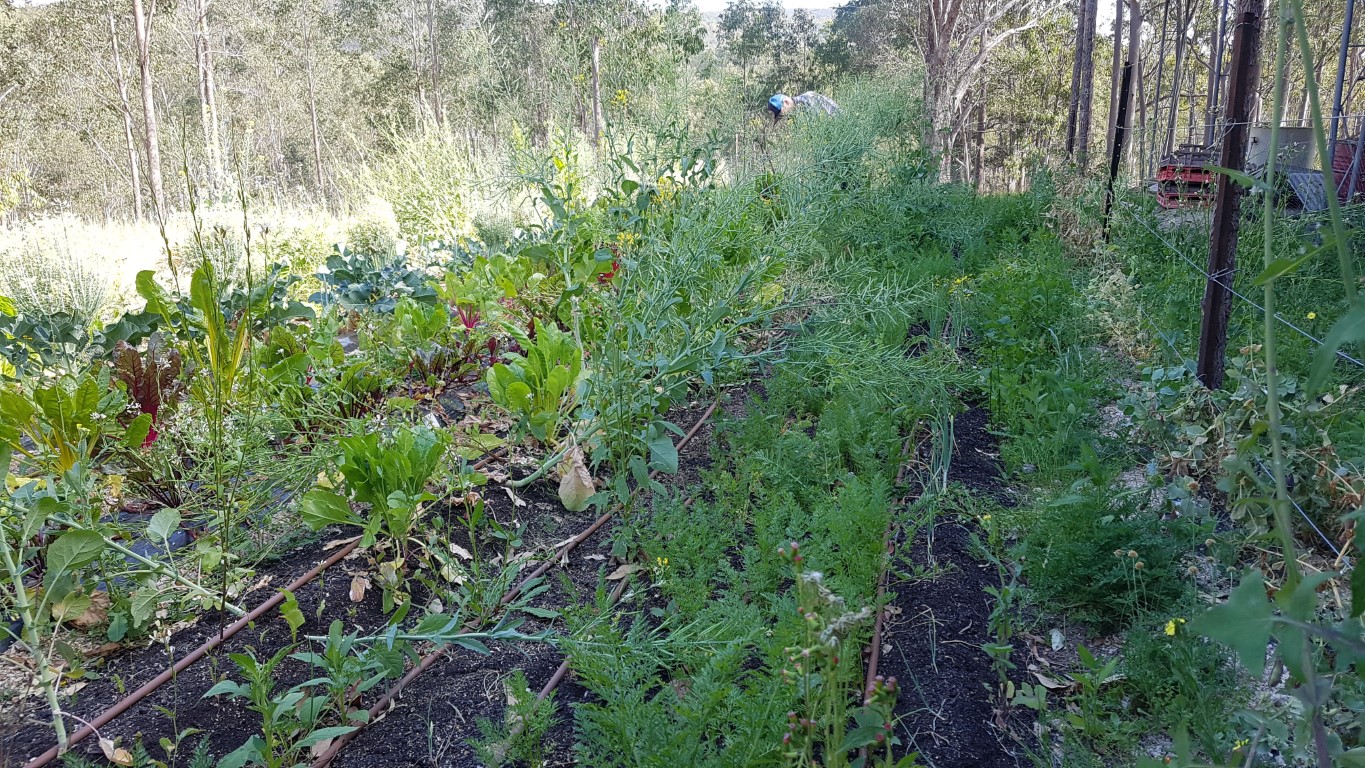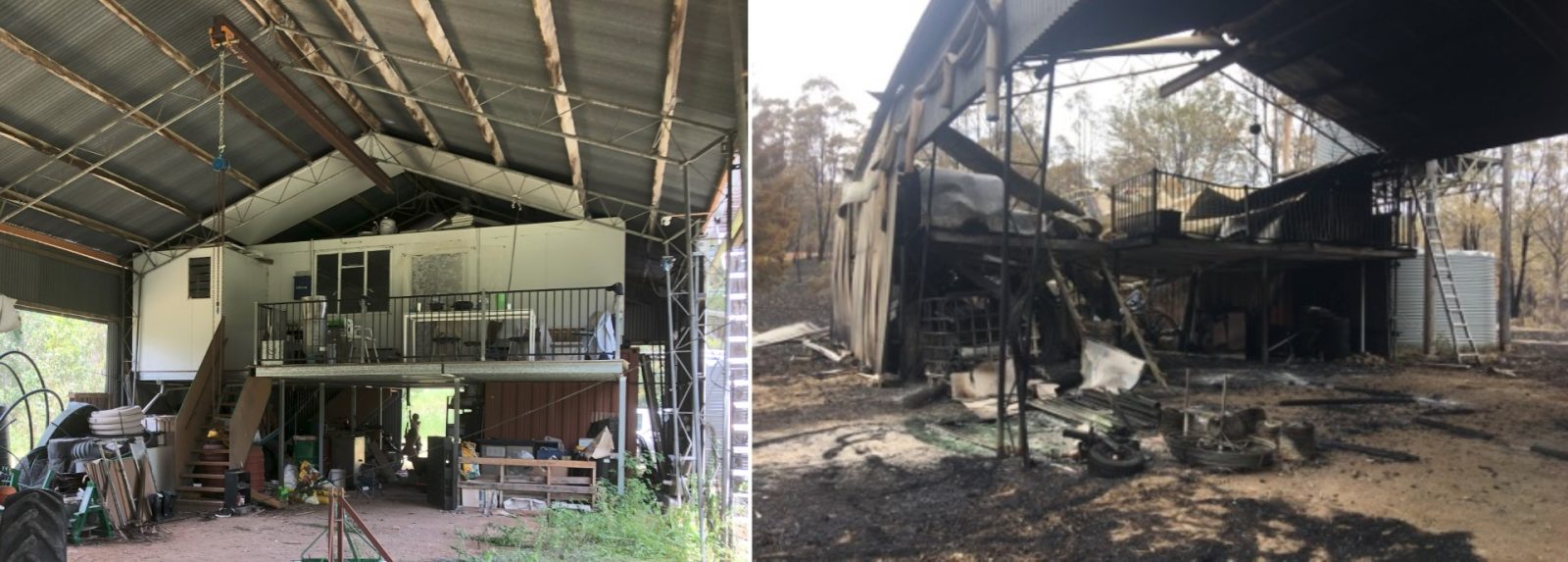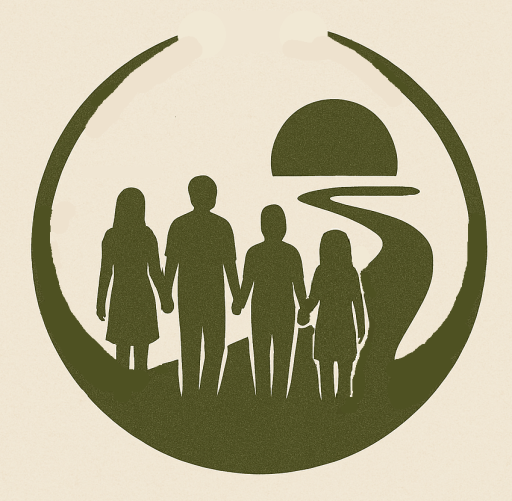Rethinking How Much We Really Need
In our first post on instincts we looked at self-preservation. Then we explored altruism. Now we turn to acquisitiveness. This is the drive to gather and secure resources. Securing a little extra energy in the form of food and turning it to fat helps many animals survive times of hardship. For our human ancestors, its reasonable to assume the same applied. Then as we formed settlements, likely as the result of climate-induced scarcity, it became necessary to have stores to survive harsh seasons. And it still feels sensible when the future looks uncertain.
I’m a fan of saving. I say be the squirrel not the grasshopper. Most people who can, do save for emergencies, for retirement, and for a home. We do this while watching environmental limits and political instability with real concern. That caution is understandable. Yet there is a cost when the instinct never knows when to stop. The investment property is one poignant example where one person’s acquisitive instinct, when multiplied by all those with the means, puts great pressure on the prospects of others yet to purchase their first home.
This post weaves three threads. Why acquisitiveness feels so compelling. How it can slide into anxiety and overload. How we can realign the instinct with our values and a thriving future.
Soothing with stuff
Most of us were raised in a culture that comforts with things. This begins early.
- A crying baby is handed a bottle, a toy or a screen when they seek closeness or a breast.
- A toddler gets a treat or experiential reward after a hard day rather than our unhurried attention.
- As children grow, the pattern becomes habit. We show our love with purchases. We build identity with purchases.
This is not an accusation. I’ve been there as a parent. And this is not a recent phenomenen or a conspiracy. The intention is loving, but the effect matters. The lesson that highly malleable infant brains take from this is that feelings can be softened by things. Later we repeat the pattern with bigger, pricier substitutes. We want new gadgets, upgrades, and experiences crammed into our calendars. We’re at times convinced that we deserve to have these things, that they will feel good or make us better. But it’s often a self-soothing behaviour through acquisition.
The relief, if noticed, is short-lived and often leaves well-being worse over time. The more we chase material goals, the more anxiety and stress grow. That is the loop: pain leads to purchasing, purchasing brings brief relief, then emptiness returns, along with clutter, debt, waste or strain in relationships.
The bigger picture
Inequality magnifies the loop. When status gaps widen, especially within a community, status anxiety grows. People lean harder on visible signals of success. That means more consumption and more stress, which further erodes trust and health. This status seeking is an instinct we will discuss further in a future post. With near universal access to media and comparison with others across the globe, the pressure will remain at every income level.
Advertising agencies and every major company understands the trend only too well, with top marketing advisors boldly claiming as early as the 1930s that they could assure perpetual sales for any business by ensuring the dissatisfaction of the public with their lot.
Making up for it
As with all instincts, there are factors in our personal development and history that can reinforce our drive to acquire. The substitution of toys or distractions for attention is a low-grade form of neglect, almost universal in most modern cultures that damages our sense of worth. Other more substantial sources of emotional injury that lead to a lifetime of insecurity, whether conscious or otherwise include:
- Bullying or exclusion can teach that worth must be proved or displayed.
- Economic hardship can wire in a deep fear of going without.
- Unpredictable caregiving can leave us grasping for control later.
- Family conflict can make achievement and possessions feel like safe ground.
- Early shaming around identity, body, or ability can spark lifelong status anxiety.
- Strong and regular praise for performance or appearance breed perfectionism.
If you recognise yourself here, you’re not alone. My own tilt toward hoarding gear was not just rational planning. It was also an attempt to soothe fear. The purchase numbed the feeling for a moment. Then the feeling returned and the cycle intensified.
Materialism also tends to erode well-being across time. People who prioritise possessions report lower life satisfaction and more distress. They also tend to become increasingly insecure and less likeable, something referred to as Rich A*hole Syndrome. And of course this amplifies the trend, but shifting toward intrinsic values improves outcomes. Relationships. Personal Fulfillment. Community. Purpose. Equality. Justice.
This is not a moral failure. It’s a human response to injury and environment. Understanding we’re in the loop is the first step to getting off it.
When self-preservation and acquisitiveness join forces
My strongest personal experience of acquisitiveness was a product of fear. After years of campaigning for climate action and little visible progress came the birth of our first child. I swung from determined to save the world to desparate to save myself and my family from a world destined for hell. And thus begun almost a decade of doomsday prepping. We bought a remote property. We spent thousands of hours and many thousands of dollars on supplies, training and equipment. We built systems and we planned for contingencies.

At first it felt practical and responsible. It was exciting and taking action allayed the anxiety. But over time it became heavier and ate away at the rest of my world. A core response to the fear of others, the ones who might come for our stuff, is the need for secrecy. And with that the common threads we shared with friends and family became progressively fewer. As we further developed the property we met, and then exceeded, the threshold of what we could maintain. We had a home and bug-out property four hours apart, automated energy and water systems, weeds, wildlife, gardens and gear that always needed attention. The work multiplied faster than our capacity to maintain it.
Breaking Out
In 2019 a friend who had some insight into our prepping project gave me a copy of A Paradise Built in Hell. It describes how ordinary people actually show up for each other in disasters. Not as violent robbers or zombies, as portrayed in popular media and prepper literature, but as neighbours and instant friends. In fact the only people to regularly harm others through fear and negligence respectively have tended to be preppers and governments. That book helped shift my view from fear of people to love for them. It is local community that is the heart of resilience. Three months living on the property during the COVID lockdown further reinforced the importance of community and the pointlessness of all the prepping if it meant living alone and in fear. We began to sell and give away what we had spent so long building up.
Then bushfire arrived in 2022 when the property was under contract for sale. Everything we had built that still remained was destroyed in a matter of a few short hours. It was a serious financial hit. Yet because we had already started to pivot, the loss didn’t strike me as hard as it might have otherwise. I was glad in part for the finality of the experience, and that we had not been there, trying to defend.

When more becomes too much
There’s a practical limit to what one family can own and maintain. Our experience made that plain. When it was only a dream, amassing tools and systems felt exciting, empowering. We were taking control. Once we started building, it was manageable for a while. Then the upkeep took over. What once felt like insurance became a strain on time, money, and attention.
Our forager ancestors, where our instincts evolved, had a built-in safeguard. They could only own what they could carry. That constraint protected time and relationships. Today the only limit is our calendar and what the banks will loan us. So we crowd our weeks and weekends, we build and buy storage, we lose leisure time to maintenance or extra overtime to pay for it all. We feel perpetually time-poor.
That self-created scarcity of time is costly in other ways too. We are less active, we sleep worse, we eat quickly. And then as we scale up quantity, the quality inevitably slips. Not just the quality of goods, but the quality of attention we are able to maintain for ourselves and for others. And with the models we have for society, we are primed with a fear of missing out. We are saturated with the idea that consumption as not just attractive, but a civic duty and contraction of spending as an economic disease requiring urgent treatment.
It’s a matter of time
We often create scarcity of time by cramming too much in. Work expands with smart phones and remote working. Activities multiply, especially for those with children. Our devices and their near perfect attention seeking algorithms fill in any gaps. Then we soothe the stress with consumption that adds to the overload. Great for the economy, but not for us. Or anyone.
A better question is how much is enough to live, not just to work. Could part-time be enough? Could a long holiday with time for contemplation reset a life? Must we defer living until retirement?
The FIRE (financial independence, retire early) movement asks versions of these. Spend less, save more. Buy freedom. The principle is sound if it doesn’t become another treadmill. You can also invert it: live more with less now. Choose modest or shared housing. Share tools and toys and cook simply. Drive less and buy more time.
We faced this head-on when deciding to take 2026 off work. We felt guilty for even considering it. But actually taking a close look at our budget and savings showed we could afford it. The hardest part was not financial. It was the story in our heads about what responsible adults do.
One caveat matters to us. We want to continue supporting effective charities. Our giving will dip a little. But the idea is to inspire others. And if two households choose a similar path of giving and follow through with their pledge. Then it would more than repay any shortfall.
Why saving for later still makes sense
I will again validate prudent saving. It might sound like I’m opposed to it, but I haven’t tilted quite so far the other way. Emergency funds are wise and retirement planning matters. Home ownership can provide stability. These are reasonable aims. So the challenge is recognising what is “enough.” And if you’re not sure, that’s pretty much universal. Whether your net worth is $10k or $10M, you are among peers if you believe enough is just over the horizon.
And that’s how it is. As incomes rise, lifestyles tend to rise. The new habits and conveniences become the baseline. The horizon is ever retreating. If we had a “safety number” in mind, it keeps swelling. We save now to protect a lifestyle rather than a life. We conflate wants with needs or sometimes “why-nots”.
There’s a wider context to this. While cash savings do little harm in themselves, the escalating spending that tends to accompany greater wealth is different. Rising consumption is destroying the planet and the chances of younger generations to have a bright future. If your annual earnings exceed AUD30k (USD20k) after tax, you are in the wealthiest 10% globally [how rich am I?]. This portion of the population is responsible for over 40% of CO2 emissions, 18 to 37% of nutrient pollution, land clearing and water withdrawals [nature]. Meanwhile 700 million people went hungry last year and almost 5 million children under 5 died unnecessarily [gap minder]. I say this to lend perspective. I know it doesn’t erase personal worries, but I hope it helps give them a frame.
What abundance actually looks like
There is a quieter abundance available now that past generations only dreamed of.
- Weatherproof, safe homes for most people in wealthy countries.
- Clean water and reliable food for most households.
- Medicine, communication, and knowledge at our fingertips.
- Tool libraries, repair cafes, and community groups on the rise.
Abundance is not universal. Many still lack basics. But for those of us who have enough, we need to start to see abundance as less like material goods and more like the capacity to enjoy what we already have and an opportunity to lift others up.
A different kind of security
After the fire, the book, and the long months of isolation, my idea of security changed. Beans, bullets and band-aids are no longer a focus. For now it is people that matter most. Community is not a feel-good extra or a threat as I saw it before, but the backbone of resilience. The shift, in plain terms, was from fear of people to love for them.
That shift in view softened other instincts too. Status seeking became less urgent. Urgency in general less appealing. I found it easier to be present and patient with Emelie, my children and my friends. Playfulness returned.
I’m not arguing against financial and material responsibility, to be clear. But I caution against materialism becoming a consumer of more than just resources. Let your preparations match your values. Let them serve connection where possible rather than secrecy. Let them be light enough to carry.
So, what is enough?
Here are some questions to prompt some further thought
- What am I trying to feel by buying this? Is it safety, status, belonging?
- Is there a cheaper, kinder way to meet that need?
- What would enough look like for housing, diet, and transport?
- If I owned half as much, what time would it free?
- If I worked one day less, what would I go without, and what would I gain?
- Which purchases deepen community? Which isolate me?
- How can I make giving a normal line in the budget?
- What have I done to make the world a better place?
From a numerical perspective, to decide if you have enough or are working hard enough, it may help to start with a detailed analysis of current spendings and net worth. Then take a long-term view of the life you are currently seeking. If it seems as though your long term goal requires a long, hard compromise on your short-term values, perhaps its worth considering if it’s worth it. Where did this aspiration come from? And what is driving it? Is it habit, are you seeking status or eluding fear? If you’re anything like me, maybe you need a nice long pat to ease your inner ferret or rabbit (or whichever other anxious critter you would be more comfortable identifying with).
Closing the loop
Acquisitiveness kept us alive through history and it still has a place. But when we use stuff to solve emotional injury, it becomes a trap. The maintenance list warns us. As do the rising mental health statistics. Our diminishing relationships warn us. We need to listen for those warnings.
My own de-emphasis on possessions began with a book from a caring friend then accelerated with a pandemic and natural disaster. It also took some honest conversations, with myself, with Emelie and with others. I’m not sure if i have the balance right yet, but I feel better. If you’re interested in exploring for yourself, perhaps the journey might begin with a small choice: sell a thing that owns you, skip an upgrade or renovation, turn gift-shopping into a call with a friend, cook with your neighbours or put giving into autopilot.
Its not about depriving ourselves of anything that matters. It’s about alignment of personal values, community values, and the needs of our planet that is telling us to want less and share more.
In the next post we’ll look at how cultures have kept acquisitiveness in check throughout most of human history. Many pre-agrarian societies used gentle humour to cool runaway ego and excess. They turned their instinct for playfulness into a tool not just for fun, but for meaning. We can learn from that too. It’s part of remembering who we are.
Continue to the next post in the series.

One thought on “Instincts 03: Acquisitiveness”